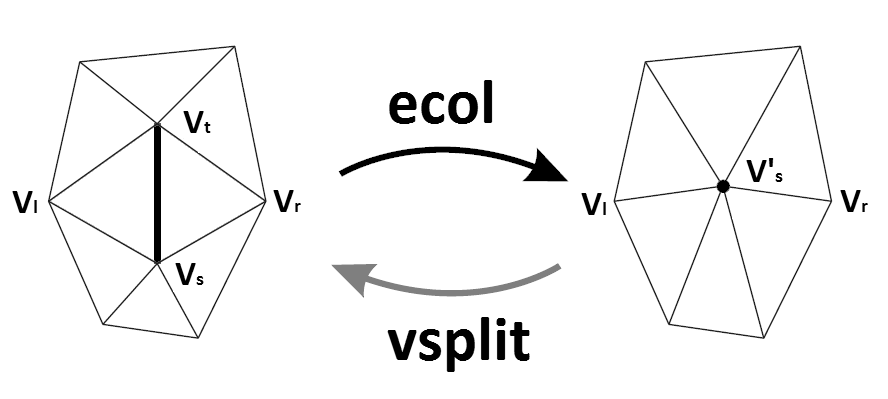Progressive refinement on:
[Wikipedia]
[Google]
[Amazon]
Progressive meshes is one of the techniques of dynamic level of detail (LOD). This technique was introduced by Hugues Hoppe in 1996. This method uses saving a model to the structure - the progressive mesh, which allows a smooth choice of detail levels depending on the current view. Practically, this means that it is possible to display whole model with the lowest level of detail at once and then it gradually shows even more details. Among the disadvantages belongs considerable memory consumption. The advantage is that it can work in real time. Progressive meshes could be used also in other areas of computer technology such as a gradual transfer of data through the Internet or compression.
D. Luebke, M. Reddy, J. D. Cohen, A. Varshney, B. Watson, R. Huebner: Level of Detail for 3D Graphics, Morgan Kaufmann, 2002,

Basic principle
A progressive mesh is adata structure
In computer science, a data structure is a data organization and storage format that is usually chosen for Efficiency, efficient Data access, access to data. More precisely, a data structure is a collection of data values, the relationships amo ...
which is created as the original model of the best quality simplifies a suitable decimation algorithm
In mathematics and computer science, an algorithm () is a finite sequence of Rigour#Mathematics, mathematically rigorous instructions, typically used to solve a class of specific Computational problem, problems or to perform a computation. Algo ...
, which removes step by step some of the edges in the model (edge-collapse operation). It is necessary to undertake as many simplifications as needed to achieve the minimal model. The resultant model, in a full quality, is then represented by the minimal model and by the sequence of inverse operations to simplistic ( vertex split operation). This forms a hierarchical structure which helps to create a model in the chosen level of detail.

Edge collapse
This simplistic operation - ecol takes two connected vertices and replaces them with a single vertex. Twotriangles
A triangle is a polygon with three corners and three sides, one of the basic shapes in geometry. The corners, also called ''vertices'', are zero-dimensional points while the sides connecting them, also called ''edges'', are one-dimensiona ...
and which were connected by the edge are also removed during this operation.
Vertex split
Vertex split (vsplit) is the inverse operation to the edge collapse that divides the vertex into two new vertices. Therefore, a new edge and two new triangles and arise.References
{{Reflist 3D computer graphics